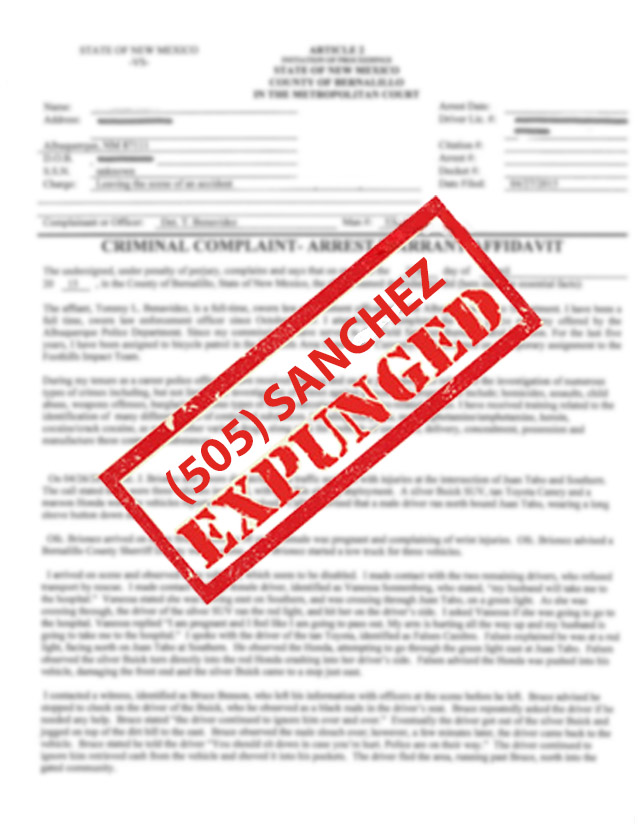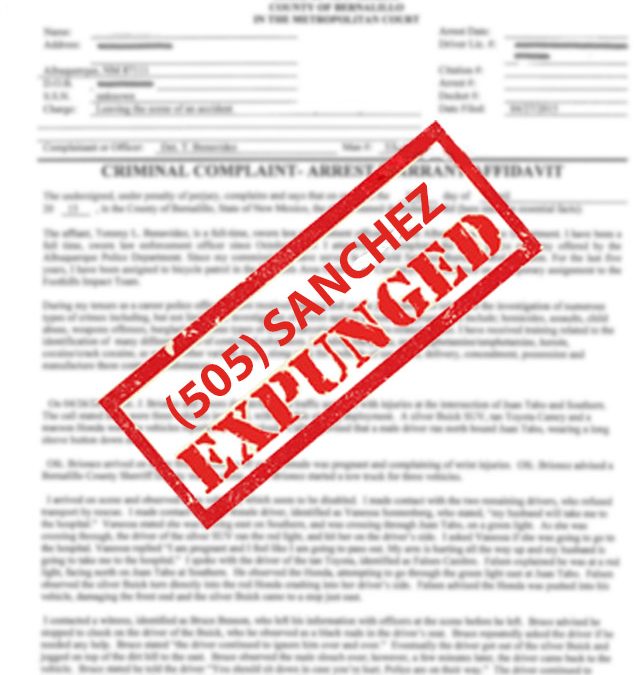
New Year for New Mexico Expungement
Seasons change, years change, and over time New Mexico expungement laws change.
Nine years ago I first wrote about expungements in New Mexico. At the time, expungements were the rare exception, rather than the norm. Because New Mexico formerly lacked an expungement statute, one was required to demonstrate “extraordinary circumstances” in order to clear one’s criminal record. Extraordinary circumstances were extremely limited and effectively required one to either demonstrate a not guilty verdict at trial, or that the underlying arrest was illegal, unconstitutional, or based on inadequate or flawed procedures.
My article ended by encouraging readers to “. . . shoot an email or telephone your local state representative to lobby for an expungement statute that is desperately needed in New Mexico.”
Fast forward nine years and the Criminal Record Expungement Act is here.
Ask and ye shall receive.
Ironically, the Expungement Act was sponsored by Moe Maestas – a State Representative that was office-sharing with my firm at the time that I wrote my initial article asking people to contact their local representative.
The new Expungement Act opens the floodgates for a sea of cases that formerly were ineligible for expungement. The Department of Public Safety estimates that more than half a million New Mexico cases now qualify for expungement under the Expungement Act.
The new law permits expungement of most arrest records in cases that did not result in a conviction – provided that one year has passed since the case finalized.
The law also provides expungement for records relating to a handful of convictions, provided that the following conditions are met:
- No other charge or proceeding is pending against the Petitioner;
- Restitution, court costs, fines, and fees have been paid;
- All requirements of the sentence have been completed; and
- No other criminal conviction has occurred for a two to four year period.
A handful of cases still remain ineligible for post-conviction expungement under the new law. These include:
- Crimes against children;
- Offenses that cause great bodily harm or death;
- Certain sex offenses;
- Embezzlement; and
- DWI.
New Mexicans that were charged with crimes that did not result in a conviction (i.e. the case was dismissed, conditional discharge, pre-adjudication diversion program, acquittal/not guilty etc.), are eligible for expungement one year after the case was finalized.
Unlike criminal proceedings, the expungement process is civil in nature and is filed through civil proceedings. Individuals requesting an expungement are required to send notice to the following agencies:
- Department of Public Safety;
- Arresting Law Enforcement Agency; and
- District Attorney’s Office.
Once the Petition is filed and notice is provided, a civil hearing is set enabling the Petitioner to demonstrate that they are entitled to an expungement, based on the requirements above. Once the hearing is successfully completed, the court must issue an order within 30 days requiring an expungement.







